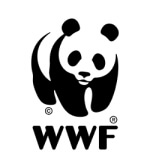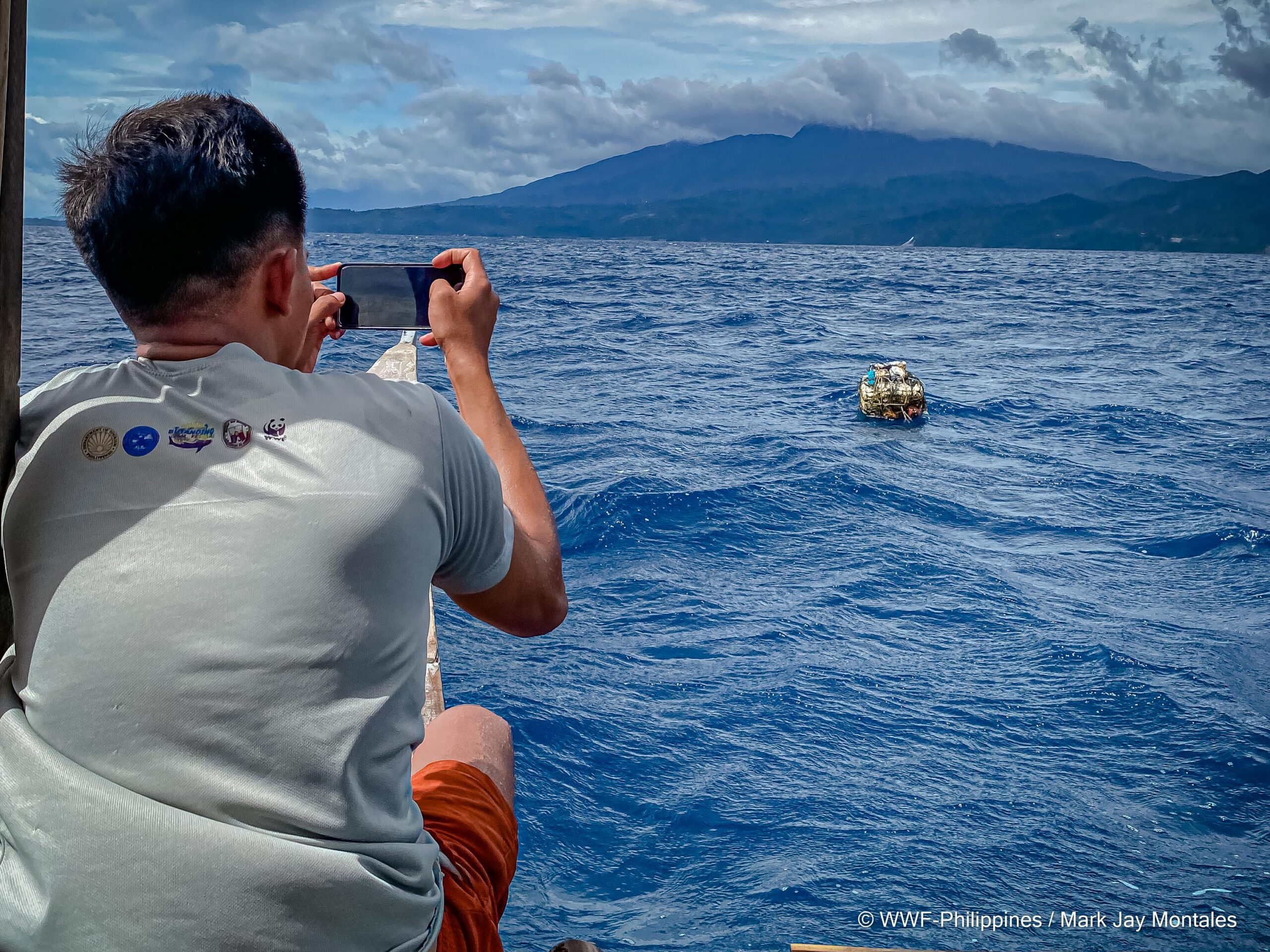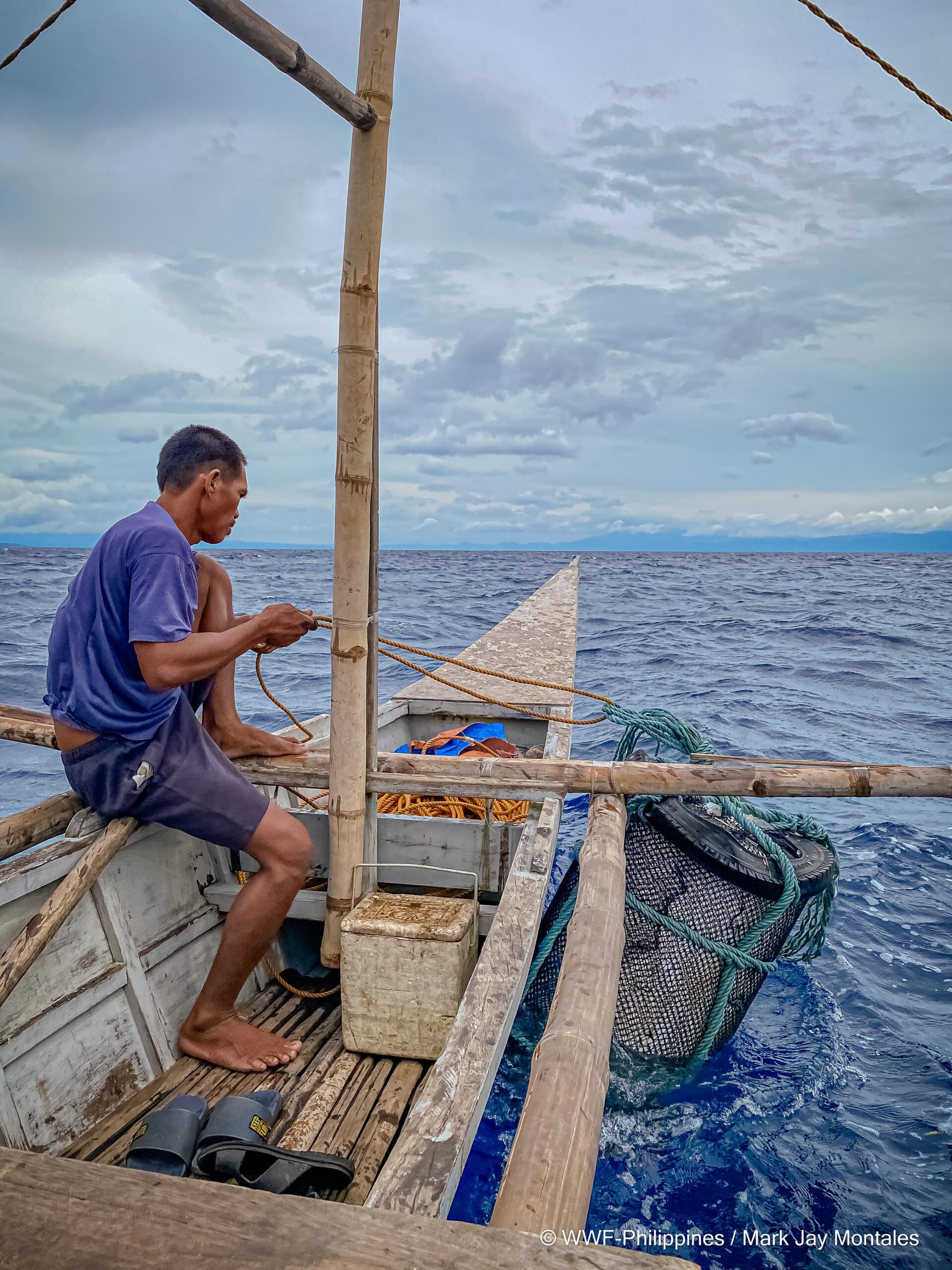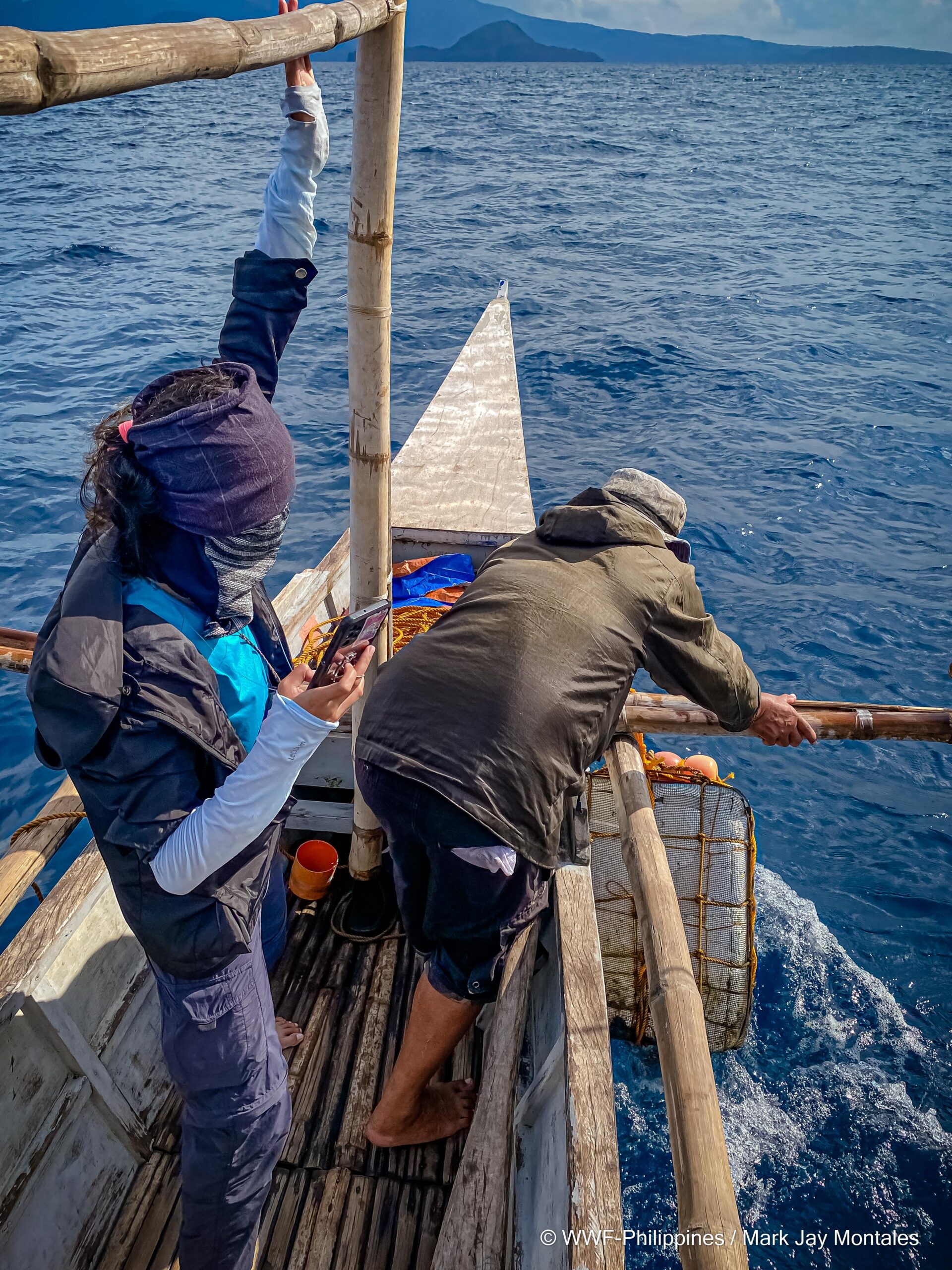Bicol – Throughout July, 2023, the World Wide Fund for Nature Philippines’ (WWF-Philippines) mapped fish aggregating devices (FADs) across the Lagonoy Gulf.
WWF-Philippines staff met with partner fisherfolk to discuss the last known location of FADs across the Lagonoy Gulf. To confirm these surveys, WWF-Philippines’ Geographic Information Systems (GIS) team took to the sea to provide coordinates for the FADs they encountered.
FADs are floating structures that cast shadows under which fish gather. FADs are made of natural materials, and are often as simple as logs and floating palm fronds. Fisherfolk have an easier time fishing using FADs, which are low cost and easy to assemble.
For the past decade, WWF-Philippines’ Sustainable Tuna program has worked to instill sustainable practices among the countries’ yellowfin tuna fisheries. To this end, the program has pursued policies for FAD management.
“Our FAD mapping activity has been quite the feat given the large size of the Lagonoy Gulf. Better data means we can take better actions, though, and we welcome the data we have secured through this survey,” shared WWF-Philippines’ Sustainable Tuna Partnership 2 (STP 2) Project Manager Joann Binondo.
Though FADs may make it easier to fish, they can also have a detrimental effect on local ecosystems as fish are lured away from natural habitats. FAD usage also leads to increased rates of by-catch, which poses a threat to endangered species.
Anchored FADs in particular are damaging to marine environments. As anchored FADs are pushed by ocean currents, their anchors drag across the ocean floor, uprooting and destroying reefs and seagrass beds as they pass.
By having FAD management policies in place, local authorities can better control their usage.
“There’s a lot that still needs to be explored when it comes to the environmental impact of FADs. With policies in place to manage their usage, though, we can do what is needed to balance the needs of both fishers and the fisheries they rely on,” added Binondo.
Learn more about the Sustainable Tuna Partnership 2 program here.





